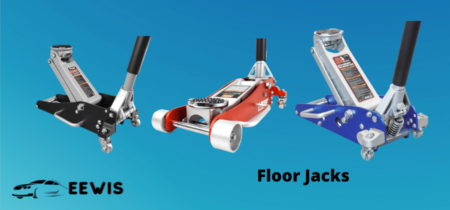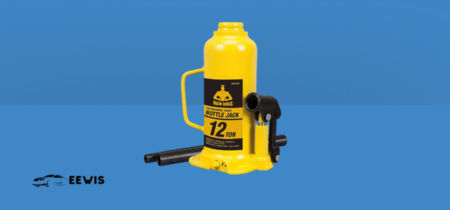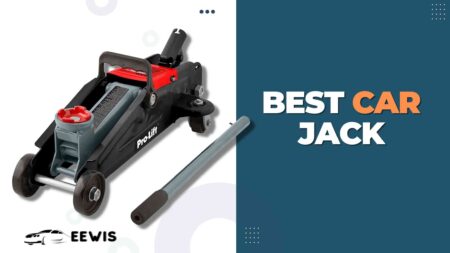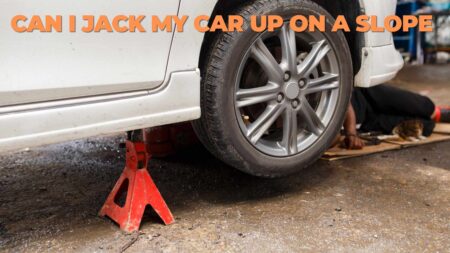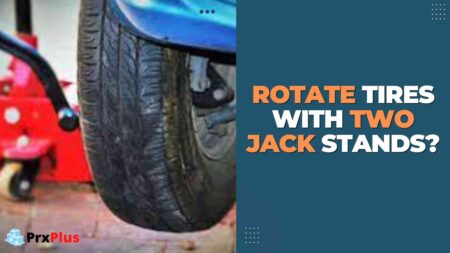The best floor jack would be an excellent tool for lifting your vehicle, so you can quickly inspect the underneath parts of your vehicle to correct damages. And it will enable you to raise and manoeuvre heavy objects with less effort and hold heavy items in the air.
Suppose you have a well-equipped workshop in the world with the best tools. So it only has no value if you cannot access the underneath component of your vehicle. Because the floor jack won’t stay up and gets to malfunction, you need it the most.
Because of this, it is necessary to fix or replace them. Likewise, the same is true for a floor jack, it is a vital tool, and this must be in your toolbox. Therefore, it is significant for refilling Oil, changing a flat tire, and making other repairs or maintenance to your SUV, car, and truck.
Despite their toughness, their improper maintenance and environmental factors may compromise their performance. Luckily, it’s something you can fix quickly with a few handy tips in this read. So let’s discover how to fix a floor jack that won’t stay up.
How To Fix A Floor Jack Won’t Stay Up or Go Down-A Quick Detail.
Every professional mechanic will tell you the essence of the best floor jack. But it would lead you to remember that all the floor jacks are not immune to problems and are prone to fail, which will require correction. You can mitigate the damage if you get signs of wear and tear.
Sometimes you need to change a flat tire, but the floor jack won’t stay up. Thus it would frustrate you in times of emergency or you are on the road. Therefore, knowing how to fix a floor jack that won’t lift is necessary.
A Floor Jack May Get Some Of The Notable Issues
Despite the different types of jacks or functions, we share issues within this tool category. Your floor jack’s ability and efficiency may badly affect its function because of its lack of maintenance.
It does not matter which floor you want to buy a jack on, but you may encounter an unpleasant time when your floor jack won’t go down. Therefore, it is significant to fix your jack swiftly. Therefore, this handy guide will teach you how to fix a floor jack that won’t lift.
So, what are the most common floor jack problems, and how should you perform quality floor jack repairs for each of them? If your equipment exhibits these signs, it is crucial to coordinate them immediately. Now, look at the most common floor jack issues and their solutions.
- Mechanical fault because of being overweight; as a result, it will not hold pressure
- Incorrect oil level or problem in the hydraulic pump.
- Presence of trapped air in the hydraulic fluid or the unit.
- An issue in the release valve tightness leads to malfunctioning.
- Frame breaking, bending, and cracking.
- Any leaks from the system will lead to the loss of pressure.
Here Are Some Valuable Tips For The Floor Jack Won’t Stay Up
Floor jacks are essential tools in commercial and industrial applications. These lifting tools are simple and efficient for lifting massive objects. Like all instruments, observant maintenance and immediate repairs are indicators of prolonging the unit’s life.
Now we will explore valuable tips for fixing a floor jack that won’t go down and malfunction. Let’s quickly go over the proper maintenance methods to avoid malfunctions. Regardless, adequate correction for many problems will benefit from professional input.
Always Avoid Overloading
They certainly fit most floor jacks with a safety overload valve. When the jack is overloaded, this element stops it from working. A 3-ton Pittsburgh floor jack wouldn’t lift over three tons even if you tried.
It is best to follow the rule of thumb. A floor jack can hold a minimum of three-quarters of the vehicle’s weight. Thus, if your floor jack cannot control the vehicle, you intend to pick it up, which may create a problem with your jack.
Though it will not only exceed a floor jack’s capacity stress, however, it can make the entire process dangerous for you. Thus, the jack’s safety valves will engage with a heavy load to stop the jack from lifting.
Therefore, we recommend that every user manually check the safety valve and track the directions to reset it.
Keep The Hydraulic Oil At The Correct Level And Monitor Jack Leakage
If your floor jack has increased or is below oil levels than the proposed level, it may serve poorly. It will diminish your jack’s credentials. Similarly, fluid leaking can also create a range of potential problems.
It would be terrific if you removed the floor jack’s fill plug and examined its oil chamber. The recommended level for the floor jack is approximately 3/16 to a quarter over the tank. If you have to refill, ensure you have the best quality oil.
If your floor jack oil level exceeds the proposed level, you will need to drain it up. It would be pleasant if you consistently inspected the floor jack oil tank to find any debris.
You should always thoroughly examine the leaking from the unit and disassemble the floor jack to check for any damaged parts that cause external and internal leakages. And then, take a potential step to solve the issue to protect your floor jack from damage.
To Bleed Your Floor Jack Or Expelled The Trapped Air
Your jack’s failure could also come from trapped air in the floor jack. To expel the trapped air from the system, you should bleed a floor jack. So it can resolve this issue.
The process typically starts by placing the unit’s valve in a retracted position, anticlockwise of the handle. In the end, reinstall the oil fill screw on the floor jack and try it again to work. Once you replace its seal, the system will function properly.
Lack of sufficient Oil in the jack’s tank leads to air building up in the unit, stopping it from lifting. Besides, we suggest; that you should not use different oils such as motor or brake oil. These oils can cause damage to your jack’s internal components.
Different oils possess distinctive viscosities that may not suit your system’s best performance. These oils also own some chemicals and diverse acidity levels, which can surge, tear up, and even spoil the components of your floor jack.
Besides, repeat this practice monthly or whenever you notice any lapses in lifting capacity. Thus, bleeding your jack every month will make your jack efficient in performance.
To Bleed Your Jack, Follow The Following Steps:
· Pump the valve ten times when it is open.
· Close the valve and raise it to its full height.
· Pump ten times while it goes to its full extension.
· Releasing the valve will lower the cylinder.
· If necessary, repeat twice the process to expel all air from the cylinder.
In most cases, this will completely bleed your jack. If not, gently pull the oil fill plug on the side after freeing and lowering the cylinder; that will help to release any trapped air.
Check The Tightness Of The Release Valve: The Right Way To Correct It
When your floor jack saddle is positioned correctly, and its handle is pumping properly, but still the floor jack won’t go down or up? For this reason, you must check its release valve’s tightness and know how to release a jack.
You must adjust it appropriately when it needs the correct position. If this is the cause, the jack will begin working again. It would be a bad idea to wait until your floor jack fails and you get stressed. Proper maintenance of the jack will make it long-lasting.
Test Your Jack Release Valve Again
If you’ve successfully done everything above and the jack is still not holding pressure, make sure the release valve works properly. Ensure the valve is airtight and free of leaks. If it isn’t, it will not maintain the pressure and allow air to flow back into the system as you raise the object.
Besides, most leaking valves have a greasy coating around them, which shows a leak. Thus, you must correct this issue to make your jack workable.
Don’t Use Floor Jacks With Damaged Frames
Once you have fixed all the issues, now it is crucial to detect any other problems. You should thoroughly examine the floor jack, such as its cracked welds, ruined parts, etc. The jack’s frame keeps the vehicles stable and secure and safely holds them in the air.
Always check it while it is in both the retracted and extended positions. You should inspect the jack’s ram by turning it on either side. It is a big issue; you cannot fix it because it will render a floor jack impractical.
When your floor jack frame is not structurally sound, your entire system can collapse under a heavy weight. Such impairment is not repairable, and you cannot fix it; therefore, it demands buying a brand-new floor jack.
If you compromise the frame of the jack, it might be dangerous, so do not fix it; replace your floor jack. Likewise, if your floor jack has rusty pistons, it may lead to a severe issue. Thus, always take care of the jack and get high safety.
Regular Maintenance And Cleaning
Rusty pistons on the floor jack show that something is wrong. Thus, inspecting your floor jack to execute an efficient function regularly is crucial. For example, examine where the jack was stored and any fluid leaks and check it’s cracking or rust and the piston rod or other damage.
It’s essential to do a comprehensive check-up of your floor jack to make it workable for a long time. It would be terrific to inspect all the parts that can prevent a future issue.
The most noteworthy part of a jack’s maintenance is checking for cracked welds, broken components, oil leaks, and everything that is out of order and unable to work. Plus, also inspect your jack ram to flip it on both sides. Also, check it in both the retracted and extended states.
Likewise, you must monitor the considerable wear and tear in any part that can create a problem. Ultimately, keep an eye out for foreign things that can impair your tool, such as metal shards, dirt, small pebbles, etc.
It’s also essential to clean the hydraulic jack after each use before storing it. Wash the jack’s exterior using a gentle soap solution. Regularly grease or lubricate your floor jack’s internal and external parts to sidestep premature wear.
To grease the caster wheels, the front axle, the elevator arm, and the handle base pivot bolts for their release mechanism with good quality lubricant to achieve its smooth function. After each use, inspect the seals for possible oil leakage and replace them as soon as possible.
Frequently Asked Questions
Why Does My Floor Jack Keep Going Down?
Suppose the jack traps too much air in the system, preventing the hydraulic fluid from building pressure. As a result, your floor jack leaks and will not go down, losing its lifting capability.
Why Does My Trolley Jack Not Stay Up?
In trolley jacks, when there is a high or low oil level in the jack, it may not stay up and will not lift the correct load.
When your trolley jack has too much Oil in the system, it will feel ‘spongy’ when you use it. It would be best to check your jack oil level and either add Oil or vacate it if required.
Do Floor Jacks Need Maintenance?
All floor jacks require little maintenance to function efficiently. Regardless, routine cleaning and inspection significantly contribute to durability and occupational safety.
Where Do You Grease A Floor Jack?
You can easily grease your floor jack after removing the handle. As a result, you will lubricate the lower end of the handle at the point where it rotates.
With a grease gun, apply grease to the lift arm pivot shaft, and you must use Oil to the fitting until grease shows up at the end of the shaft. Besides, you should also grease the front wheels, rear casters, and lift arm linkages of the jack.
How Do You Burp A Floor Jack?
If you are a new user, thus, you determine that your floor jack bleed valve is present at its bottom. When you identify the bleed valve, so pump the handle at least 8 to 10 times to expel all the trapped air from the unit. Thus, this is a way that you can burp a floor jack with ease.
What Causes A Hydraulic Floor Jack That Won’t Lift?
Failure of a floor jack always results from a lack of hydraulic pressure. It is because of the low fluid levels or an internal or external seal leak. You must never forget the standard points to fix it, such as its oil level, trapped air, and broken seals.
Because of issues in these points, your hydraulic floor jack would not lift. Accordingly, you will get a workable jack to lift heavy objects with no ado after fixing these issues correctly.
Conclusion
To cut the story short! After reading the guide line by line, you will undoubtedly learn how to fix a floor jack won’t stay up your floor jack. We must know the skills to determine the real issue causing our jack’s failure.
The major points covered in this reading are worthwhile to solve the underlying problems for your jack. All issues are usually easy to deal with; however, if the problem is complex, follow expert guidance.
Also, it would be terrific if you remembered that the most common issues that make your jack fail are overloading, oil under-fill or overfill, rusty ram or pistons, trapped air, and the rest.
Confidently, you’ve learned how to fix a floor jack that won’t lift. Regular maintenance is, once again, the most straightforward approach to avoiding malfunctions in the future.



